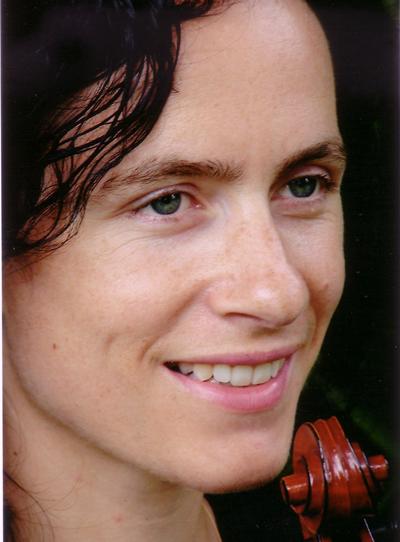Miss Hazel Brooks
Honorary Research Fellow

Miss Hazel Brooks is an Honorary Research Fellow in Music at the University of Southampton.
Hazel is a specialist in early violin and viola, performing music ranging from the medieval to classical periods. She joined the music department at Southampton as an honorary research fellow in 2012. A graduate of Clare College, Cambridge, she went on to study the violin at the Hochschule für Musik und Theater in Leipzig, then the Guildhall School of Music and Drama in London, where she specialised in historical performance and won various awards. Principal teachers have included Rosemary Rapaport, Fred Roth and Micaela Comberti. Her performing career focuses principally on the following areas:
Violin – Hazel has performed as a recitalist across Europe and in most major venues in the UK. She is also frequently asked to lead orchestras and appears as a concerto soloist. Particularly drawn to the baroque sonata, from the very earliest examples of the genre up to the sonatas of J. S. Bach and beyond, Hazel now also researches, edits and performs forgotten violin sonatas, especially those from seventeenth-century sources or involving scordatura. Described by Gramophone as ‘accomplished and knowledgeable’, she is highly sought after as a performer in this field. Her longstanding musical partnership with harpsichordist David Pollock (www.duodorado.co.uk) has provided a medium for exploration and performance of neglected repertoire and early techniques, and has led to a number of critically acclaimed recordings, including releases with CRD and Chandos of early English music.
Vielle (medieval fiddle) – Much in demand as a vielle player, particularly for her sensitive accompaniment of singers, Hazel has performed with medieval ensembles including Boston Camerata (USA), Concanentes (UK), Trist’alegre (Netherlands), Ordo Virtutum (Germany), Artemesian Ensemble (Germany), Ensemble Aziman (France), Circa 1500 (UK), New London Consort (UK), and Camerata Mediterranea (Western and Moroccan musicians). Fascinated by the interplay of language and melody in this repertoire, she continues to work with soprano Faye Newton in duo Trobairitz (www.trobairitz.co.uk), which specialises in music of the troubadours and trouvères. They perform internationally, have made numerous radio appearances, and have released a recording with Hyperion.
Viola d’amore – This once popular instrument is largely neglected nowadays outside its annual appearances in Bach’s St John Passion. Hazel plays it extensively, exploring lesser-known repertoire from numerous early manuscript sources, through concertos and cantatas by Vivaldi, Bach and Telemann, to music written by contemporary composers. The frequent use of scordatura in baroque music for the viola d’amore ties in with Hazel’s interest in scordatura writing for the violin.